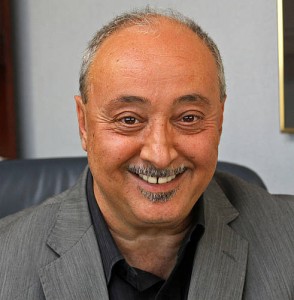

Ahmed will be responsible for connecting academic initiatives with the community. He will work closely with the deans and faculty to foster an institutional perspective that engenders collective leadership and builds support for academic programs that engage community partners far and wide.
Ahmed currently serves as director of the Michigan Department of Human Services. Governor Jennifer M. Granholm appointed him to this position in 2007, and he will serve in this capacity until Jan. 1, 2011.
Ahmed leads the state’s second largest agency, overseeing nearly 11,000 employees and administering an annual budget of $6 billion. His department handles 2.3 million adult and child welfare cases and provides 1.7 million recipients with food assistance. Departmental responsibilities include: administering the federal TANF and Food Assistance programs; determining eligibility for Medicaid and Social Security disability services; child and family services; foster care; adoptions; and domestic violence prevention, along with many other services that improve the lives of Michigan residents.
“Ismael Ahmed led the Department of Human Services during some of the toughest economic times in Michigan history when demand for assistance skyrocketed,” said Granholm. “He focused on eradicating poverty, implemented training to get challenged citizens into the workforce, helped create an online assistance system and oversaw the biggest reforms ever in child welfare. Ismael’s concern for people and his skill in building community partnerships will serve him well at UM-Dearborn.”
A nationally-recognized expert on poverty, immigration and social reform, Ahmed served as executive director of the Arab Community Center for Economic and Social Services (ACCESS). During his 38 years with ACCESS (24 years as director), Ahmed advocated for low-income, new immigrant, and other marginalized communities across metro Detroit and beyond through a range of social justice, human services and arts activist programs focused on accessibility and equality. ACCESS began as a volunteer organization that translated documents, taught English and helped new immigrants find assistance among Michigan’s social services. Today, ACCESS is the largest Arab-American human services organization in the United States with an operating budget of more than $17 million, a full- and part-time staff of 300, and affiliates in 11 states.
“Ismael has universal respect and acceptance throughout metro Detroit. His ability to build relationships are unmatched by any leader in the community and his energy plus strong commitment make him the perfect fit for the strategic vision of the university. The University of Michigan-Dearborn has chosen an exceptional leader for this position,” said Hassan Jaber, executive director, ACCESS.
“UM-Dearborn has long been committed to having a productive impact on southeast Michigan through faculty research and academic programs,” said Kate Davy, provost, UM-Dearborn. “Ismael’s community relationships, ability to build partnerships and decades of accomplishments will help the university to make an even greater difference in the education of its students and the life, economy and culture of the region.”
"As a student, alumnus, long-time advisory board member and eventually an employee, I welcome the opportunities to contribute and make a difference with my fellow colleagues at UM-Dearborn," Ahmed said. "This appointment will continue my life's work on important social issues that impact southeast Michigan."
Ahmed is an alum of UM-Dearborn. He holds a bachelor’s degree in secondary education. He serves on the boards of a number of organizations, and is also a Vietnam-era veteran, having served a U.S. Army tour of duty in South Korea.


